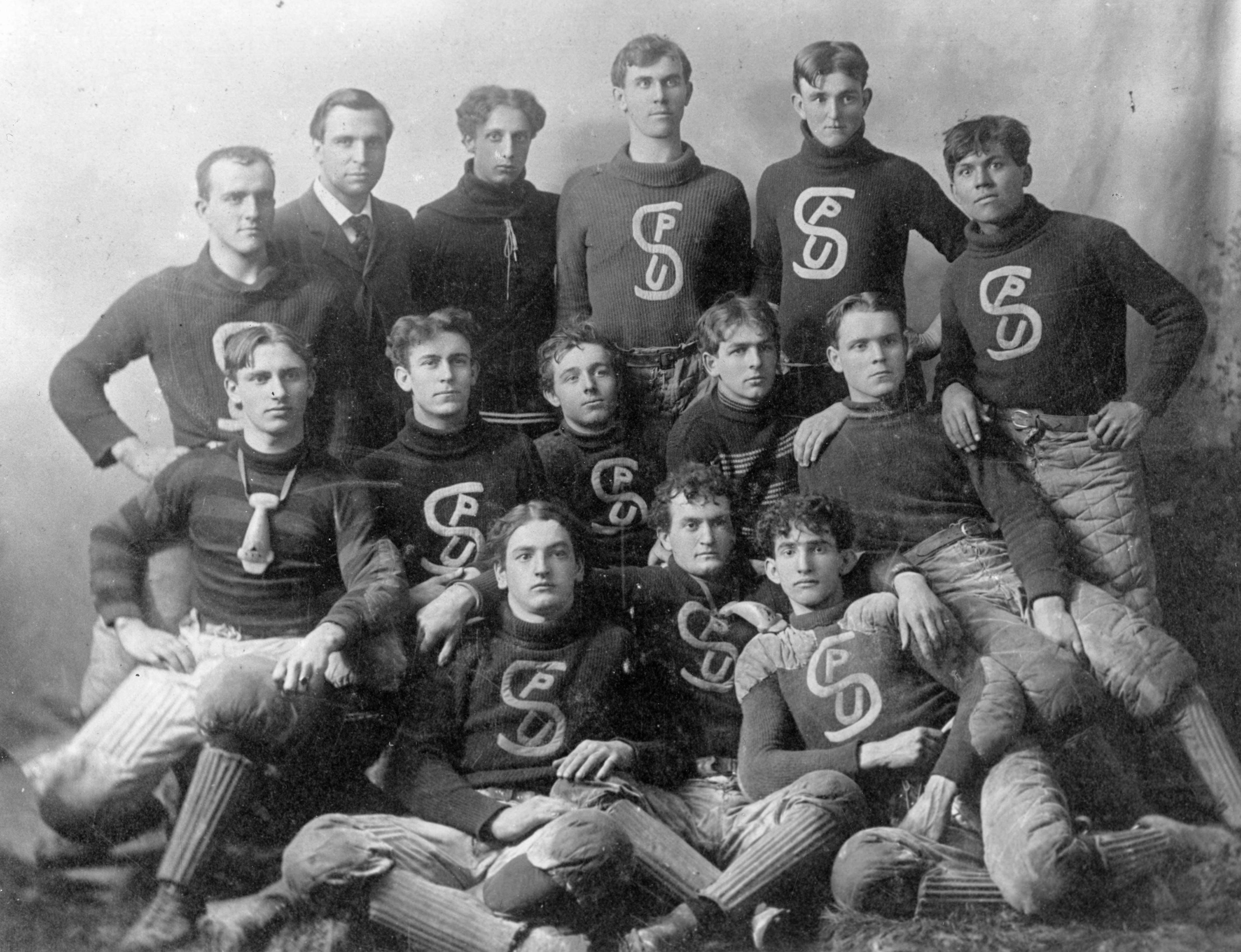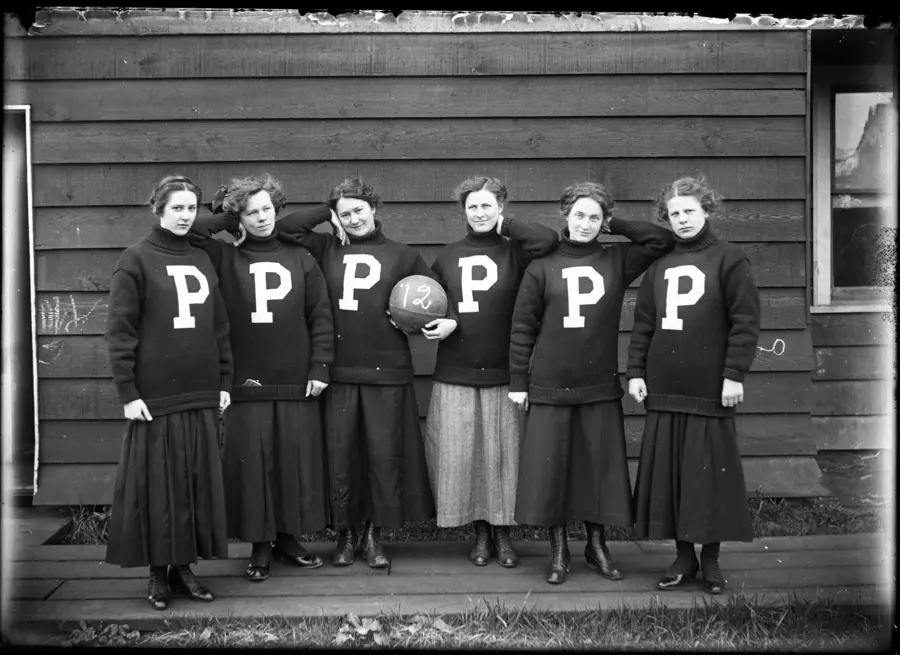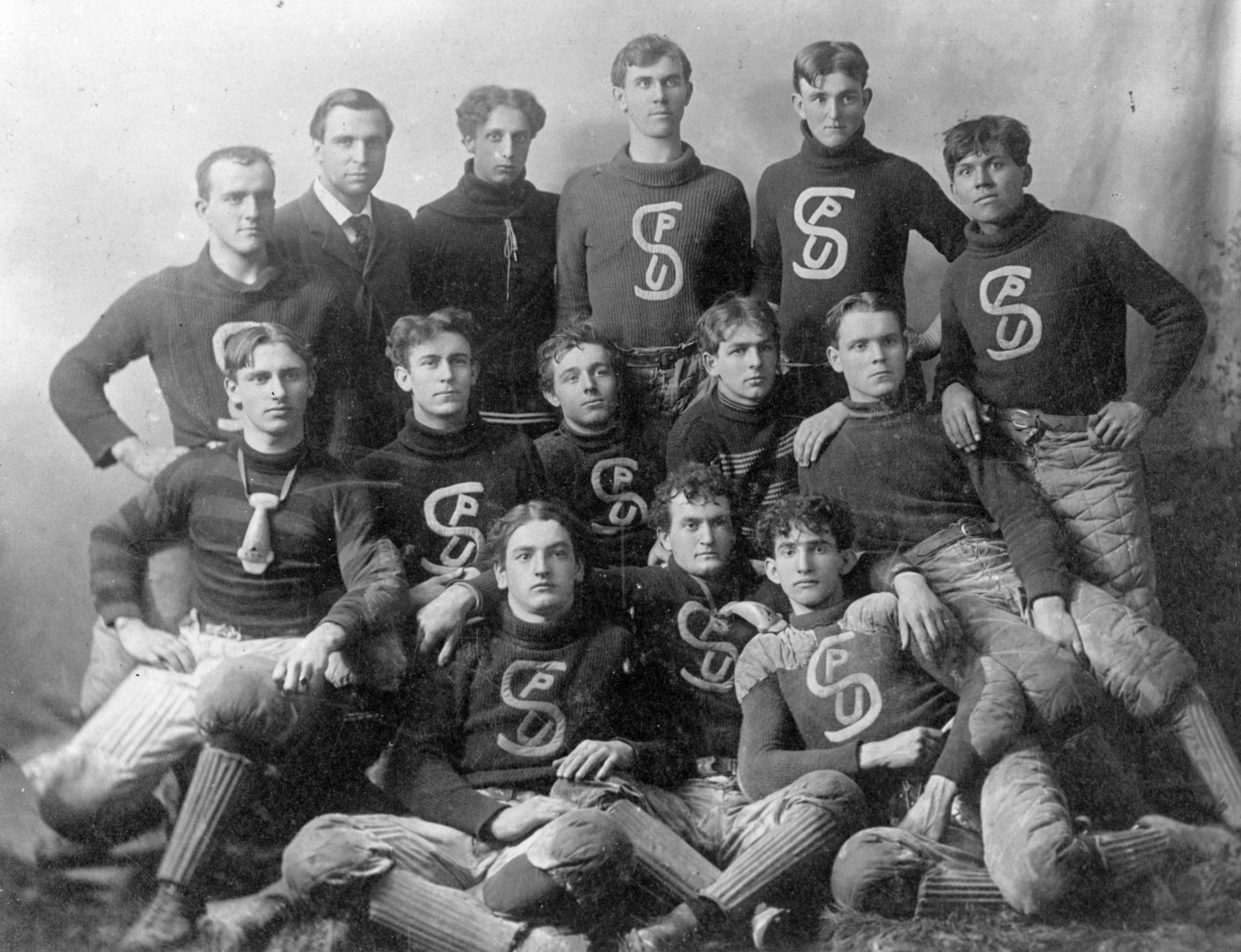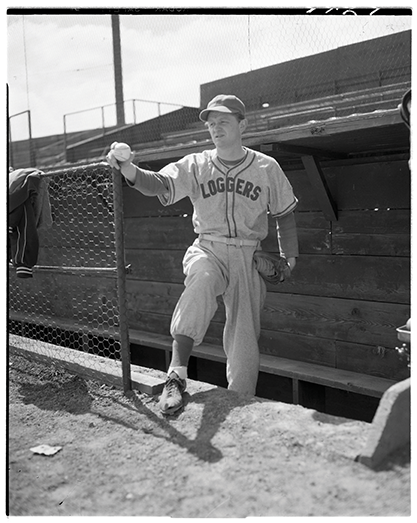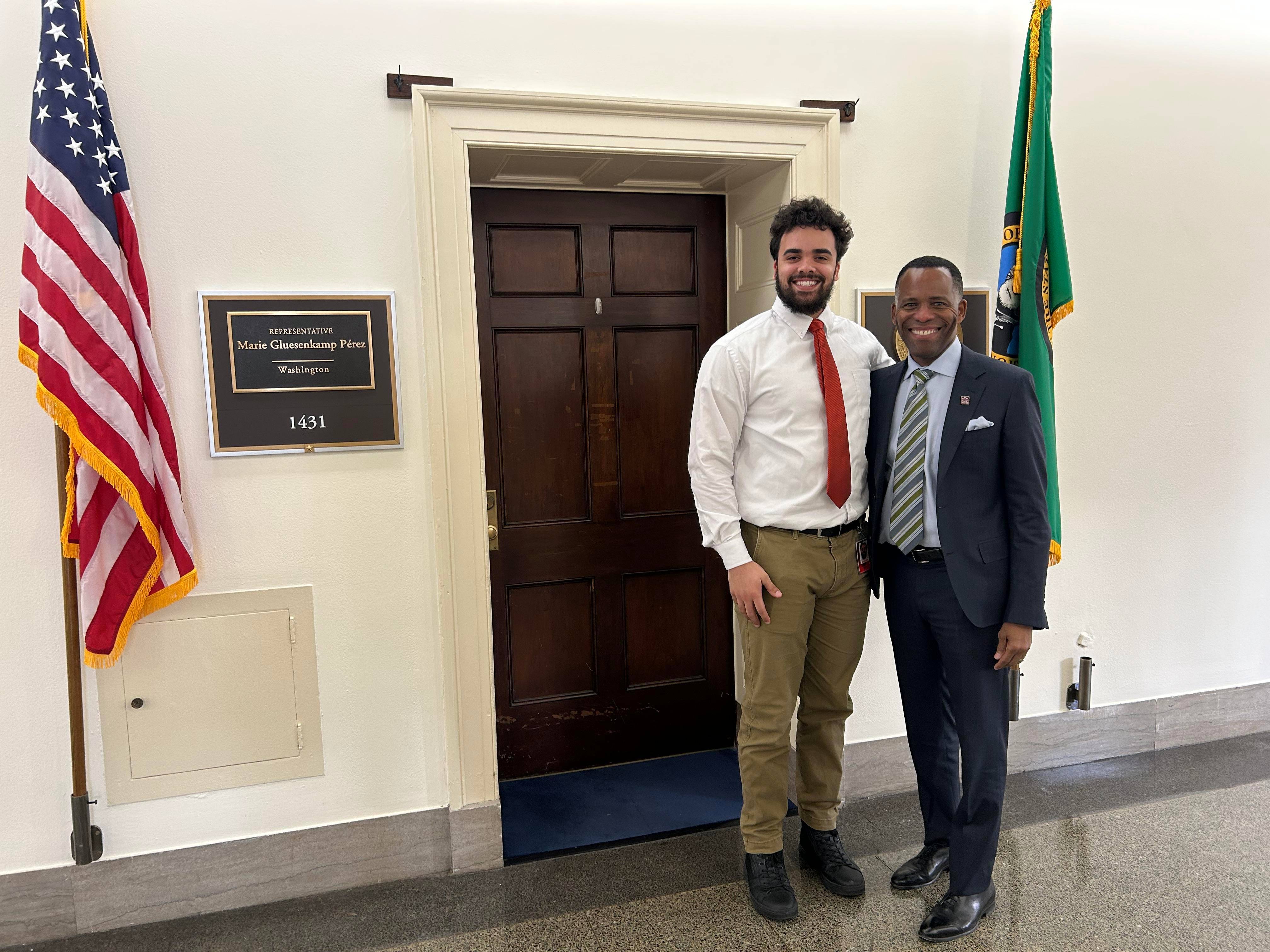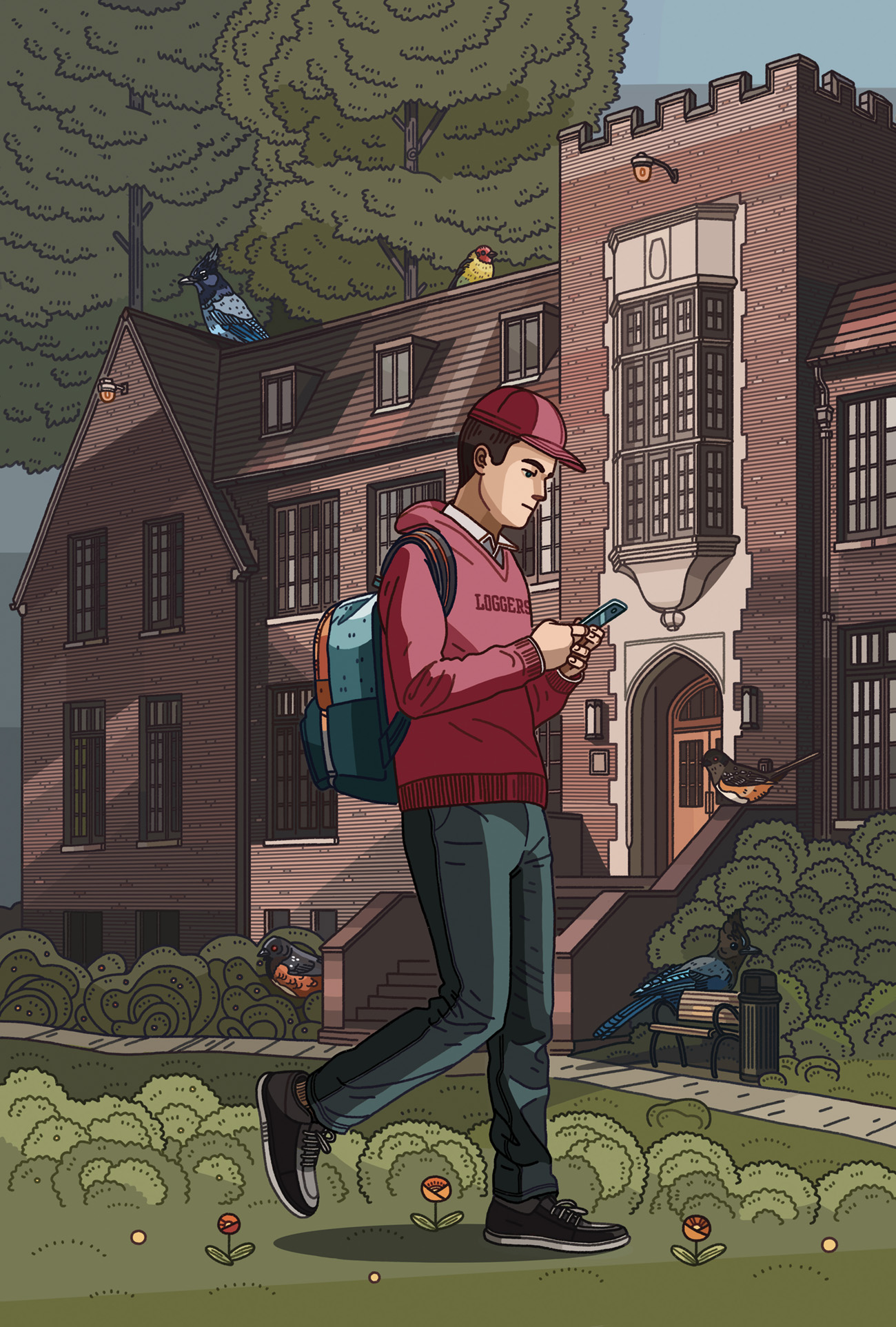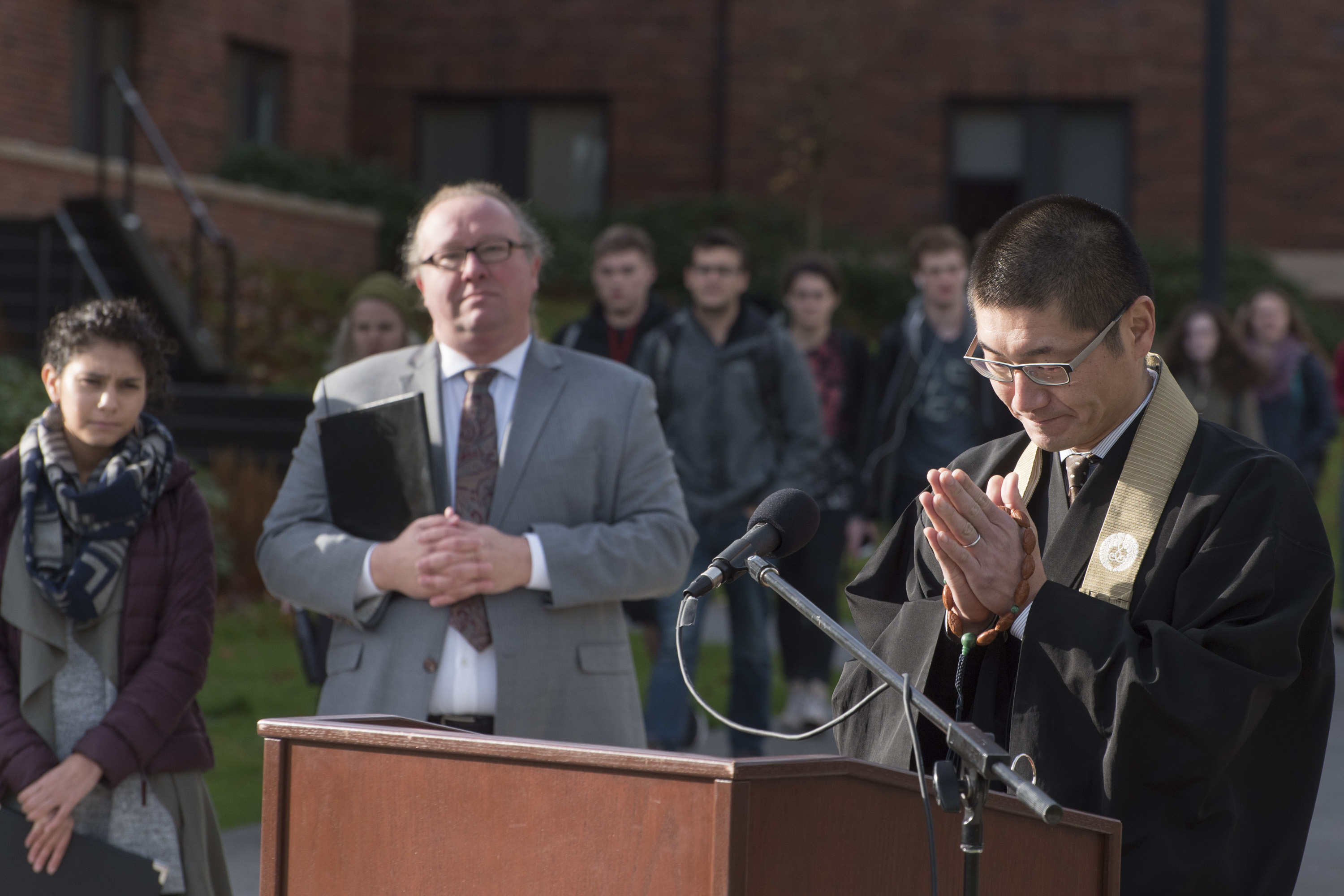How, then, did the Grizzlies morph into the Loggers? The sources that Threlkeld could find made no reference to the story of Charlie Brady and his lumberjack teammates as the source of Puget Sound’s new nickname. Instead, with the help of then-archivist Adriana Flores ’13, Threlkeld found a brief mention in The Trail dated Jan. 10, 1923, stating that the college needed a new nickname. “Get busy and hand in your suggestion to the Athletic Manager,” the article instructed, promising that students would then vote on the names at an upcoming assembly.
A week later, The Trail reported that nine names had come in: Clamdiggers, Whales, Seals, Sock-Eyes, Steelheads, Skippers, Sky Pilots, Pilots, and Loggers. A week after that, student Preston Wright ’28 wrote an opinion piece lobbying for Loggers: “It is a name that implies strength, fearlessness, conquest, and rough, whole-hearted friendship,” he wrote, adding that the name lent itself to such symbols as the “two-bitted ax, the peevee, or the crosscut saw.”
If the promised athletic assembly and student vote ever took place, the student newspaper seems not to have reported on it. But mentions of “Loggers” started appearing in the paper almost immediately. “Loggers Lose to Camp Lewis,” read the headline to a basketball story in the Feb. 14, 1923, Trail.
For the rest of that spring, the newspaper regularly referred to the college’s basketball, baseball, and track & field teams as the Loggers. Local newspapers also picked up on the name: On Oct. 26, 1923, the Vashon Island News-Record reported that the University of Washington football team would take the field “against the College of Puget Sound Loggers” the following Saturday in Tacoma. “The Loggers this season have a good team, one of the best that has represented the College of Puget Sound in years, but they can hardly expect to cope with the brilliant Washington team.” (Sure enough, UW beat Puget Sound that day, 24-0.)
So what really happened? Did Charlie Brady’s father originate the Loggers nickname, as the News Tribune twice claimed? Or did it start with a poll by the student newspaper?
It’s possible that both stories could be true. Charlie Brady and Preston Wright could have known each other as students; moreover, Wright was a savvy older student who had considerable work experience and happened to be sports editor of The Trail. It has crossed Threlkeld’s mind that Brady told Wright about his father’s idea and that Wright responded, I know a way to make it happen. “That’s wholly speculative, of course,” Threlkeld says. “But it might help account for the two versions.”
We may never know. But Threlkeld is actually OK with that. For one, there’s still the pride that comes from being the only NCAA team in the country to use the name. That’s not to discount the Lewis-Clark Valley Loggers, a football club associated with Lewis-Clark State College in Idaho, but they’re considered only an NCAA “affiliate.” (Puget Sound beat those Loggers, 20-0, in an exhibition game at Baker Field earlier this season.) Lincoln Land Community College in Illinois competes as the Loggers in the National Junior College Athletic Association. But no NCAA team at the Division III level or above claims the Logger name. Only Puget Sound.
Beyond that, Threlkeld is just happy to have figured out when the name originated, if not exactly how. “I’m glad we discovered this, and in time to mark the centennial,” he says. “And I’m glad that I knew one of those original Loggers.” He regrets that he never had a chance to ask Charlie Brady or others of that era to tell their story. But he’s happy for what he does know. “When you’re out there playing, the name isn’t something that helps you win a game,” Threlkeld says. “But these things are significant, because they help develop a sense of who we are.”
A postscript about Charlie Brady: After graduating from Puget Sound, he spent a few years teaching, then returned to the family business, working in the timber industry until his retirement. Because, after all: Once a Logger, always a Logger.
